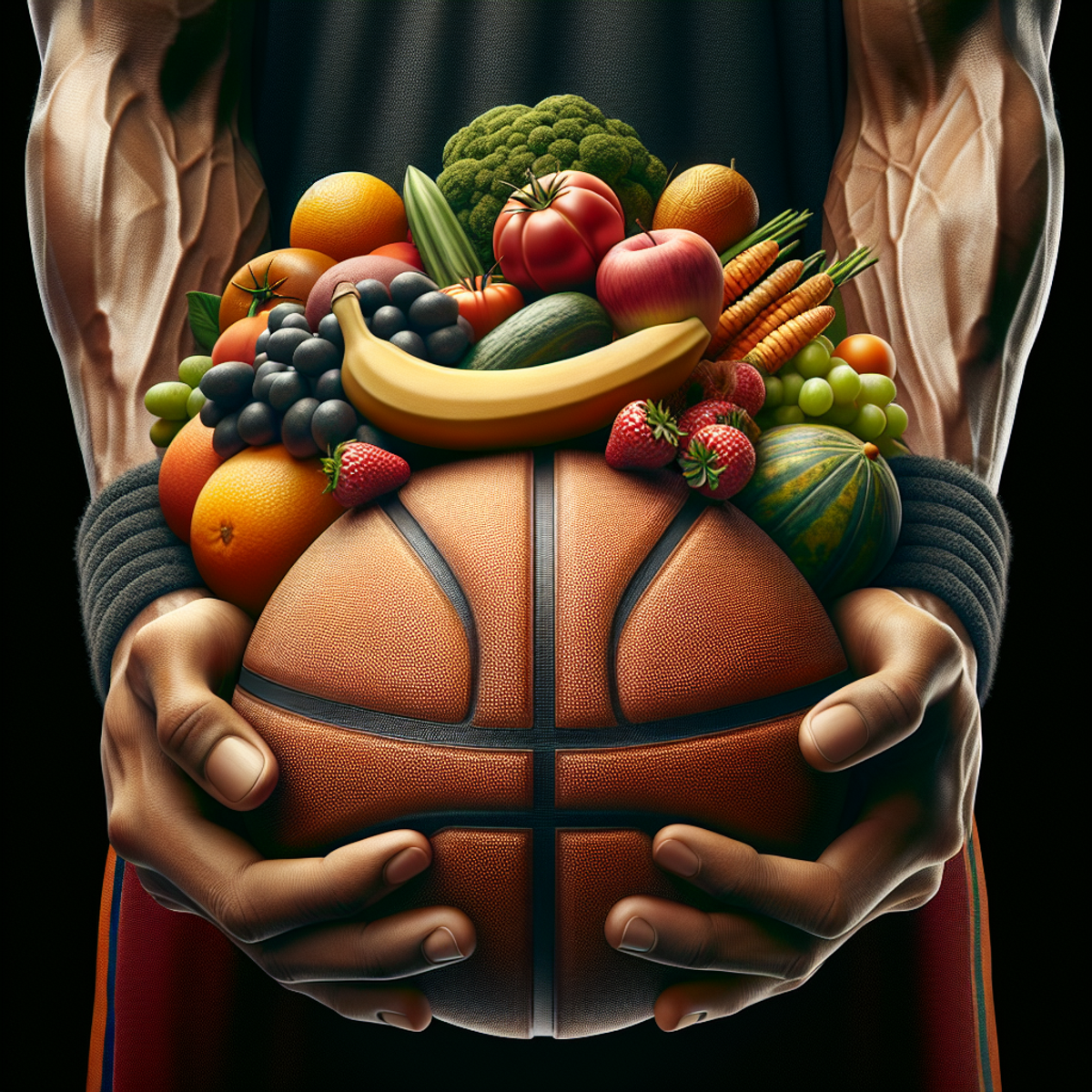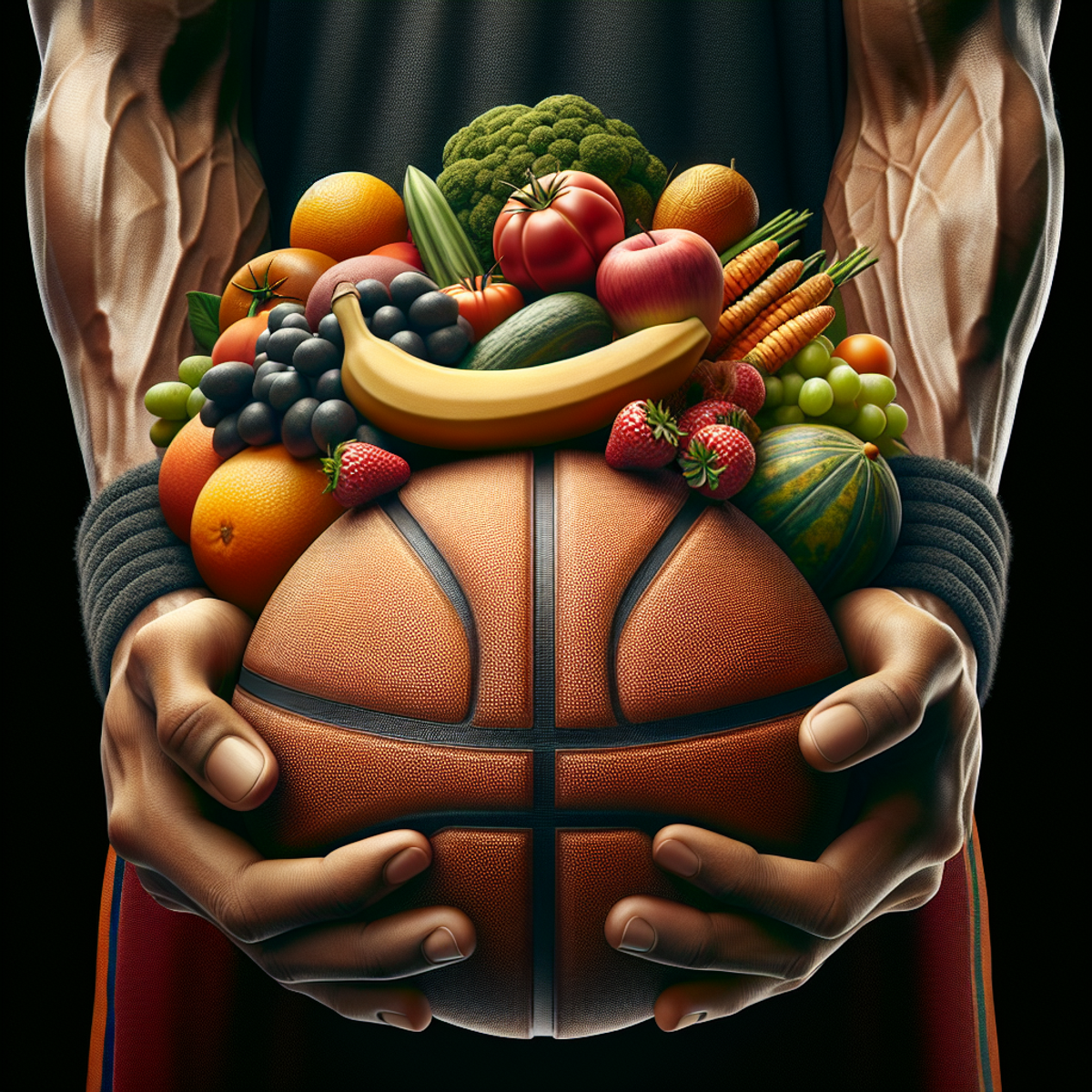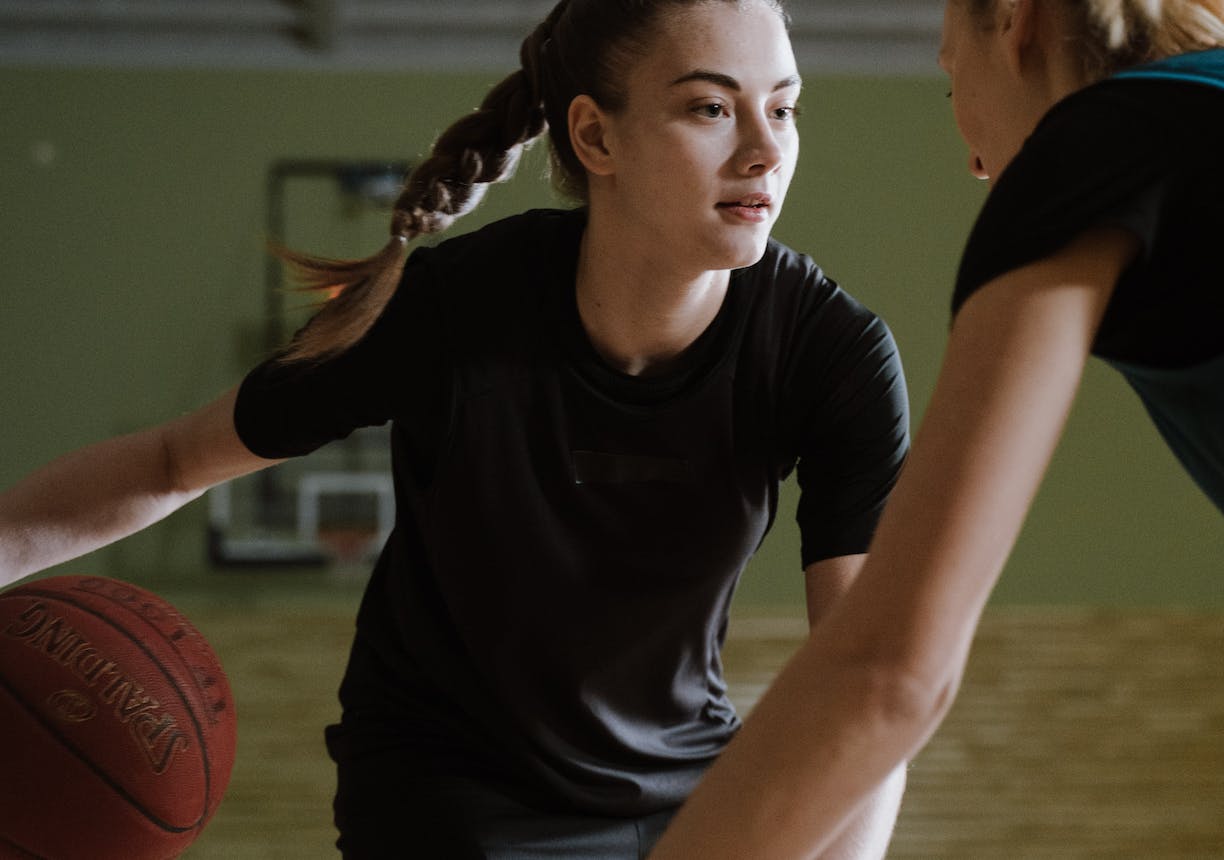
Maximize Your Performance with These Basketball Nutrition Hacks
Nutrition is crucial for basketball players as it directly affects their performance on the court. A balanced diet can greatly improve various aspects of the game such as stamina, focus, and overall athleticism. It not only provides the energy needed for intense gameplay but also aids in faster recovery and reduces the risk of injuries.
In this article, we will discuss several important nutrition strategies specifically designed for basketball players. These strategies include:
- Macronutrients: Understanding the right balance of carbohydrates, proteins, and fats.
- Micronutrients: Identifying essential vitamins and minerals.
- Hydration: Effective techniques to maintain optimal hydration levels.
- Pre- and Post-Game Nutrition: Optimizing meals before and after games for better performance and recovery.
- Training Day Nutrition: Fueling your body during intense practice sessions.
- Injury Management: Using nutrition to support recovery and prevent injuries.
- Personalized Diet Plans: Evaluating dietary trends and creating individualized nutrition strategies.
Our aim is to provide you with practical basketball nutrition tips that you can easily incorporate into your routine to enhance your performance on the court.
If you're looking to upgrade your basketball system, we offer a range of high-quality basketball systems designed to complement your training efforts. Whether you need a smaller rim like our IE Sports Basic Rim 32in Backboard, or a standard rim like our IE Sports Basic Rim 44in Backboard, we have options that fit your needs perfectly.
The Role of Nutrition in Basketball Performance
Nutrition significantly impacts athletic performance, especially for basketball players. Proper sports nutrition fuels the body, enhances stamina, and supports mental clarity, all crucial aspects for top-tier performance on the court.
Unique Nutritional Needs of Basketball Players
Basketball players have specific nutritional requirements due to the sport's intense physical demands. Key considerations include:
- High Energy Expenditure: Basketball involves continuous running, jumping, and quick changes in direction, leading to high caloric needs.
- Muscle Recovery: Frequent games and practices necessitate a diet rich in protein and other nutrients that aid in muscle repair.
- Hydration: Maintaining fluid balance is critical to prevent dehydration and associated performance dips.
Benefits of Proper Nutrition
Proper nutrition goes beyond just fueling the body. It also contributes to:
- Improved Stamina: A well-balanced diet ensures sustained energy levels throughout games and practices.
- Mental Clarity: Essential nutrients support cognitive functions, aiding in decision-making and on-court strategies.
- Injury Prevention: Nutrients like calcium and vitamin D strengthen bones and joints, reducing injury risks.
Basketball players can further optimize their performance by considering other factors such as installing an in-ground basketball hoop, which offers a permanent and sturdy solution for their home court. Our comprehensive guide compares in-ground basketball hoops vs portable, covering factors like installation, ground anchors, and backyard court sizes to help them choose the perfect setup. Additionally, integrating physical education programs into their training regimen can provide a holistic approach towards enhancing their skills on the court.
1. Fueling for Success: Understanding Macronutrients for Basketball Players
Basketball is a high-intensity sport that demands significant energy and endurance. The macronutrients—carbohydrates, proteins, and fats—are essential in providing the necessary fuel and supporting various physiological functions during games and workouts.
The Role of Macronutrients
- Carbohydrates: These are the primary source of energy for basketball players. Carbohydrates break down into glucose, which fuels your muscles and helps maintain stamina during intense play. Foods like whole grains, fruits, and vegetables are excellent sources.
- Proteins: Critical for muscle repair and growth, proteins ensure your muscles recover quickly after heavy exertion. Lean meats, fish, eggs, and plant-based sources such as beans and lentils are recommended.
- Fats: Although often overlooked, healthy fats are vital for prolonged energy release, hormone production, and overall cellular health. Avocados, nuts, seeds, and fatty fish provide beneficial fats.
Ideal Macronutrient Balance
A balanced diet tailored to a basketball player's needs includes:
- Carbohydrates: Aim for 55-60% of daily calorie intake.
- Proteins: Should make up about 15-20%.
- Fats: Keep it between 20-30%.
Calorie Intake Guidance
The exact calorie requirement varies based on factors like age, weight, height, and activity level. Generally:
- Moderately active basketball players might need around 2,500 to 3,000 calories per day.
- Highly active players may require upwards of 3,000 to 4,000 calories.
Properly fueling with the right balance of macronutrients can significantly enhance your performance on the court. For all your basketball equipment and training needs, including 54" Backboard Basketball Hoops, feel free to reach out to IE-Sports.
2. Essential Micronutrients for Optimal Basketball Performance
Key vitamins and minerals play a crucial role in maintaining good health and supporting performance in basketball. These micronutrients aid in various physiological processes that are essential for athletes, such as energy production, muscle function, and immune support.
Key Vitamins for Basketball Players
- Vitamin D: Enhances calcium absorption, crucial for bone health and muscle function. Sources include sunlight exposure, fatty fish, and fortified dairy products.
- B Vitamins (B6, B12, Folate): Vital for energy metabolism and reducing fatigue. Found in whole grains, lean meats, eggs, and leafy green vegetables.
- Vitamin C: Supports immune function and aids in collagen synthesis for joint health. Citrus fruits, berries, and bell peppers are excellent sources.
Important Minerals for Basketball Performance
- Calcium: Essential for bone strength and muscle contractions. Dairy products, leafy greens, and fortified plant-based milks provide ample amounts.
- Magnesium: Helps with muscle relaxation and reduces cramping. Nuts, seeds, whole grains, and legumes are rich in magnesium.
- Iron: Crucial for oxygen transport to muscles. Red meat, beans, lentils, and spinach are iron-rich foods.
Incorporating these vitamins and minerals into your diet can be straightforward:
- Start your day with a breakfast smoothie containing spinach (iron), berries (vitamin C), and fortified almond milk (calcium).
- Opt for a lunch of grilled chicken (B vitamins) with a side of quinoa (magnesium) and mixed greens (folate).
- Snack on nuts or seeds during breaks to boost your magnesium intake.
Understanding the importance of these micronutrients allows you to maintain peak performance levels while also supporting overall health.
If you're looking for additional support in your basketball performance, consider incorporating some physical aids like IE Sports Elastic Cable Ties into your training regimen. These cable ties offer versatility and durability, helping you optimize your workouts.
For more information about IE Sports and their range of products, you can visit their About Us page. Additionally, if you have any questions or concerns, their FAQ section might provide the answers you're seeking.
3. Hydration Strategies to Stay on Top of Your Game
Maintaining proper hydration is crucial for basketball players to perform at their best and avoid issues like cramps or fatigue. Given the high sweat rates and intense physical demands during games and practices, the body's need for fluids increases significantly.
Why Hydration Matters
- Sustains Performance: Staying hydrated helps regulate body temperature, lubricate joints, and deliver nutrients to fuel muscles.
- Prevents Cramps and Fatigue: Dehydration can lead to muscle cramps and early fatigue, adversely affecting game performance.
- Maintains Electrolyte Balance: Sweating causes the loss of essential electrolytes such as sodium, potassium, and magnesium. Replenishing these electrolytes is crucial for preventing dehydration-related issues.
Pre-Game Hydration
- Start Early: Begin hydrating at least 24 hours before the game.
- Consistent Fluid Intake: Consume water regularly throughout the day, aiming for at least 16-20 ounces of water two hours before the game.
During-Game Hydration
- Frequent Sips: Take small sips of water or an electrolyte drink every 15-20 minutes.
- Electrolyte Drinks: Opt for sports drinks like Gatorade that contain necessary electrolytes to replace those lost through sweat.
Post-Game Hydration
- Rehydration: Immediately after the game, drink 16-24 ounces of water for every pound lost during play (weigh yourself before and after).
- Electrolyte Replacement: Choose drinks that replenish both fluids and electrolytes to aid faster recovery.
To ensure you stay on top of your game, incorporate these hydration strategies. Remember, IE Sports offers a range of products like Heavy Stretch Elastic Cord for training, Space Blitz Ricochetball (available from May 15th, 2024) designed for physical education curriculums, and the 50" Backboard Basketball Hoop for an enhanced playing experience.
4. The Pre- and Post-Game Advantage: Nutritional Tactics for Preparation and Recovery
Pre-Game Meals
The timing and composition of pre-game meals are crucial for delivering the energy needed to sustain high performance throughout a basketball game. Consuming a meal rich in easily digestible carbohydrates about 3 to 4 hours before the game can provide immediate energy without causing gastrointestinal distress.
Key Considerations:
- Timing: Have your main meal 3-4 hours before the game.
- Carbohydrates: Focus on easily digestible carbs like pasta, rice, or oatmeal.
- Proteins: Include moderate amounts of lean protein such as chicken or fish.
- Fats: Keep fat intake low to ensure quick digestion.
Example Pre-Game Meal:
A bowl of oatmeal topped with banana slices and a sprinkle of chia seeds is an excellent choice. It offers complex carbs for sustained energy and is easy on the stomach.
Post-Game Nutrition
Effective post-game nutrition accelerates muscle recovery and replenishes glycogen stores depleted during play. A combination of protein and carbohydrates within 30 minutes post-game can optimize recovery.
Key Considerations:
- Timing: Eat within 30 minutes after the game.
- Proteins: Aim for around 20 grams of protein to aid muscle repair.
- Carbohydrates: Include fast-digesting carbs like fruits or sports drinks to quickly replenish glycogen.
Example Post-Game Snack:
A smoothie made with yogurt, mixed berries, and a scoop of protein powder delivers the necessary nutrients for recovery.
By strategically planning your pre-game meals and post-game nutrition, you ensure that your body is well-fueled and primed for peak performance, while also promoting efficient recovery. This holistic approach not only enhances your game-day capabilities but also supports long-term athletic development.
To further optimize your basketball performance, it's important to have the right equipment. For instance, a 44" Backboard Basketball Hoop from IE-Sports can provide you with a perfect sports experience. This hoop features an 18" regulation size basketball rim and a shatterproof regulation 44" polycarbonate backboard. Its durable Q195 steel support system ensures longevity. Investing in quality equipment like this can greatly enhance your skills and overall game performance.
Additionally, ensuring safe delivery of such equipment is crucial. IE-Sports offers a comprehensive shipping policy that covers all standard shipping and handling charges in the US, ensuring that your product reaches you safely and promptly.
5. Leveraging Nutrition on Training Days
Proper nutrition can make a significant difference in your performance and recovery on intense training days. Here are some essential training day nutrition tips to help you stay energized and build muscle effectively.
Pre-Workout Snacks
Fueling up before a training session is crucial. Aim for a snack that combines easily digestible carbohydrates with a small amount of protein about 30-60 minutes before your workout. Some excellent pre-workout snack options include:
- A banana with a tablespoon of peanut butter
- Greek yogurt with honey
- A small smoothie made with fruits and a scoop of protein powder
- A handful of trail mix containing nuts and dried fruit
Post-Workout Meal Ideas
Recovery is just as important as preparation. After an intense training session, your body needs nutrients to repair muscles and replenish glycogen stores. Aim to consume a balanced meal within two hours post-workout, consisting of both carbohydrates and proteins. Consider these meal ideas:
- Grilled chicken breast with quinoa and steamed vegetables
- A turkey sandwich on whole-grain bread with a side of fruit
- A protein shake made with milk or a plant-based alternative, paired with an apple
- Salmon fillet with brown rice and mixed greens
Hydration also plays a pivotal role on training days. Ensure you are drinking plenty of water throughout the day, especially before, during, and after your workouts.
To complement your training routine, you may also want to consider investing in quality basketball equipment like an IE Sports Professional Breakaway Rim, which offers durability and superior performance during intense games. Additionally, having Replacement Nets on hand can ensure that your basketball hoop remains in top condition for extended periods.
Ensuring you have the right nutrition plan on training days can significantly enhance your performance and recovery, helping you get the most out of every practice session.
6. Managing Injuries Through Proper Nutrition
Nutrition plays a crucial role in both the recovery from basketball-related injuries and the prevention of future ones. Consuming the right nutrients can significantly aid in tissue healing and reduce inflammation, ensuring you get back on the court faster and stronger.
Key Nutrients for Injury Recovery and Prevention
- Protein: Essential for muscle repair and growth. Include lean meats, fish, eggs, and plant-based sources like beans and lentils in your diet.
- Omega-3 Fatty Acids: Known for their anti-inflammatory properties, these can be found in fatty fish like salmon, walnuts, and flaxseeds.
- Vitamin C: Supports collagen formation, which is vital for tissue repair. Incorporate citrus fruits, strawberries, bell peppers, and broccoli into your meals.
- Vitamin D: Aids in bone health and immune function. Sources include sunlight exposure, fortified dairy products, and fatty fish.
- Calcium: Important for maintaining strong bones. Dairy products, leafy greens, and fortified plant-based milks are excellent sources.
Strategies for Maintaining Joint Health
To keep your joints healthy:
- Hydration: Staying well-hydrated ensures that your joints remain lubricated.
- Balanced Diet: A diet rich in antioxidants from fruits and vegetables can help combat oxidative stress on your joints.
- Healthy Fats: Including sources of healthy fats such as avocados and nuts can support joint flexibility.
For additional support during your training or recovery periods, consider checking out high-quality replacement nets to maintain optimal performance conditions on your home court.
Understanding how to leverage nutrition for injury management can make a significant difference in your athletic longevity. If you ever need to revisit or adjust your nutritional strategy due to dietary changes or unexpected circumstances, reviewing the return policy from IE-Sports might be useful to ensure you have the right equipment support.
7. Navigating Dietary Approaches: From Trends to Individual Needs
Popular dietary trends often promise quick results, but not all of them are suitable for basketball players. It's crucial to evaluate these diets within the context of your unique basketball goals and preferences.
Personalized Nutrition for Basketball
Personalized nutrition is key for optimizing performance. Each player has different needs based on their body type, metabolism, and training intensity. A diet that works for one athlete might not be effective for another. Consulting with a qualified expert can help tailor a nutrition plan that suits your individual requirements.
Evaluating Popular Diets
When considering popular dietary trends, keep the following in mind:
- Keto Diet: High in fats, low in carbs. While it can help with weight loss, it may not provide the quick energy needed during intense basketball games.
- Paleo Diet: Focuses on whole foods like meat, fish, fruits, and vegetables. Beneficial for overall health but may need adjustments to meet the high energy demands of basketball.
- Vegan Diet: Plant-based and excludes animal products. Requires careful planning to ensure adequate protein and other nutrients essential for muscle repair and recovery.
Tailoring Your Plan
Work with a sports nutritionist to develop a nutrition plan that incorporates:
- Balanced Macronutrients: Ensure you get the right mix of carbohydrates, proteins, and fats.
- Essential Micronutrients: Vitamins and minerals support overall health and performance.
- Hydration Strategies: Maintain electrolyte balance to prevent cramps and fatigue.
For instance, an advanced rim system like the IE Sports Advanced Rim 50in Backboard can enhance your practice sessions by providing a more realistic gameplay experience. Similarly, a personalized diet plan, crafted by a qualified expert, can significantly improve your performance on the court.
Customizing your nutritional approach ensures that you meet the specific demands of basketball while staying healthy and energized. For those serious about recovery and performance, consider adding elements like a rebounder fabric replacement from IE-Sports to your training arsenal.
Understanding your body’s needs leads to better performance and resilience on the court.
Seeking Expert Advice: An Interview with Sports Nutritionist Ignacio Escribano Ott
To wrap up our in-depth exploration of basketball nutrition, we spoke with sports nutrition expert, Ignacio Escribano Ott, who specializes in working with basketball players at all levels.
Key Takeaways from the Interview:
- Personalized Nutrition Plans: Ignacio emphasizes the importance of tailoring nutrition plans to each player’s individual needs. He advises against a one-size-fits-all approach and encourages consulting with qualified experts to create customized strategies.
- Balanced Diet: A balanced intake of macronutrients and micronutrients is crucial. Ignacio highlights that carbohydrates should be the primary energy source, complemented by adequate proteins and healthy fats for muscle repair and overall body function.
- Hydration: Proper hydration is non-negotiable. He recommends consistent fluid intake before, during, and after games to maintain optimal performance and prevent dehydration-related issues like cramps and fatigue.
- Pre- and Post-Game Nutrition: Effective pre-game meals should focus on easily digestible carbohydrates for quick energy. Post-game nutrition should aim at muscle recovery through a combination of proteins and carbohydrates.
Ignacio’s recommendations are practical ways aspiring basketball players can enhance their performance through tailored nutrition strategies. For more insights on improving your game, explore our Basketball Pass-back Rebounder to complement your training or discover the Surprising Basketball Benefits for both physical and mental health.

